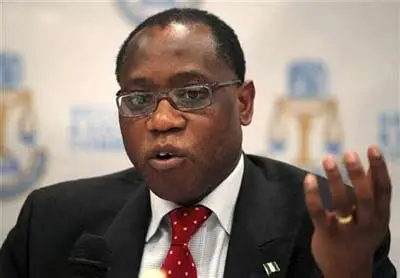Breaking News
Nigeria’s Development Stalled by Shortage of Quality Political Leaders — Ex-Minister Aganga
Former minister Olusegun Aganga says Nigeria’s biggest challenge is a lack of competent political leadership, despite having abundant skilled professionals. Speaking at a Lagos book launch, he criticised money-driven party structures and urged value-based leadership to drive national development and human capital growth.

Former Minister of Industry, Trade and Investment, Dr. Olusegun Aganga, has said Nigeria’s biggest leadership crisis is not the absence of competent individuals, but the lack of competent political leaders capable of driving national development.
Aganga made the remarks while presenting the keynote address at the Lagos launch of Dr. Olu Fasan’s book, “In the National Interest: The Road to Nigeria’s Political, Economic and Social Transformation.”
He argued that although Nigeria boasts some of the brightest minds globally, the country’s political structure consistently sidelines capable professionals, preventing them from taking positions where they could contribute meaningfully to nation-building.
According to him, Nigeria’s leadership system is structured in a way that “competent hands are schemed out,” especially when technocrats attempt to enter politics and are confronted by money-driven, self-serving party structures.
Quoting Aganga:
“There is no shortage of competent leaders in Nigeria. What we lack, however, is competent political leadership. The truth is that there is an acute shortage of quality political leadership with the national interest at heart at every level of public life in Nigeria.”
He questioned why a country with abundant talent and internationally acclaimed professionals continues to perform poorly in political leadership.
He stated the answer was straightforward:
“Our political system does not attract the best talents… The political apparatus is composed so that the best talents are unable to emerge from the existing party structures, which are primarily driven by money and are self-serving.”
Aganga added that even when technocrats are appointed into government, they are often limited by a system where political calculations overshadow economic and developmental priorities.
He stressed that Nigeria urgently needs leaders who are “energetic, vibrant, inspirational, intellectually robust, exposed,” and capable of managing a diverse nation while pursuing a transformative vision that can lift citizens out of poverty.
Highlighting Nigeria’s alarming statistics, he noted:
– Average age: 18.6 years
– Poverty rising by six people every minute (World Bank)
He said successive governments’ failure to invest in human capital has resulted in widespread poverty, unemployment, insecurity, and a largely unproductive population.
Aganga warned that Nigeria’s large population — typically an advantage — has become a liability due to underinvestment in education, skills, health, and welfare.
He stressed the need for leaders who can confront poverty, unemployment, and insecurity head-on, while prioritizing human development and social progress.
He insisted that fixing Nigeria’s political leadership requires reforming how leaders are recruited, reducing the monetization of politics, and strengthening political institutions, especially parties.
Beyond leadership alone, Aganga emphasized the importance of values in governance:
“A society that is not underpinned by the right values, where leadership is not values-based, cannot truly succeed… True leadership is values-based.”
He maintained that without integrity, empathy, justice, and a strong public service ethos, even technically competent leaders cannot transform a country.
Opinion Nigeria News










